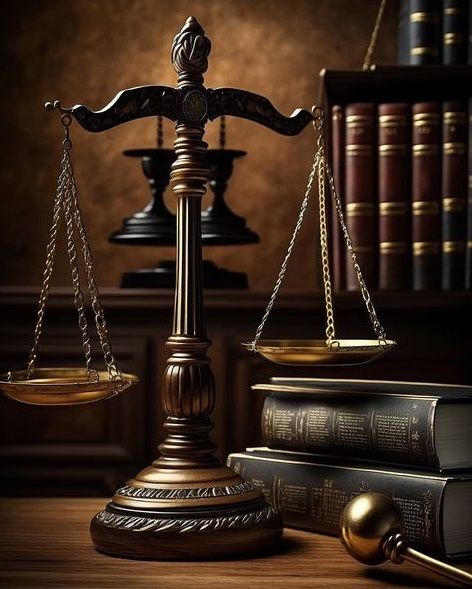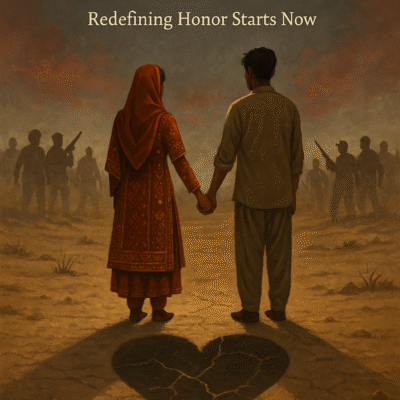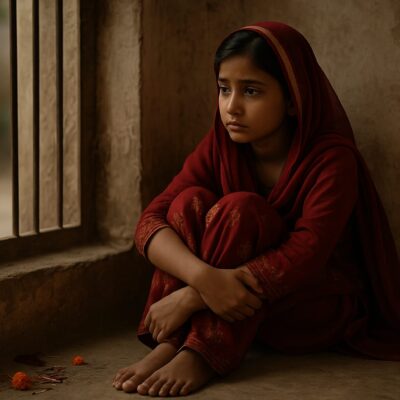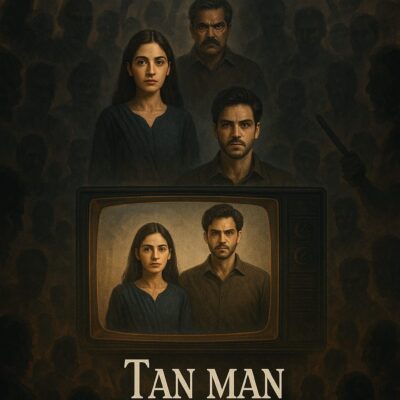Imagine a world where justice is blind, yet the reality is starkly different. Racial profiling, a silent but powerful force, casts a shadow over our streets and courtrooms, where individuals are judged not by their actions but by color of their skin. Can we dismantle the walls of racial profiling?
Racial profiling is a big problem that makes criminal injustice worse in Pakistan and around the world. It happens when law enforcement target people based on their race, ethnicity, or nationality instead of any real evidence of criminal activity.
Global patterns of Racial Profiling
In the U.S, racial profiling disproportionality affects African Americans, Latin individuals and other minorities. Practices like “stop and frisk” and traffic stops are more likely to target these populations, resulting in higher arrests and incarceration rates. As ‘Over the study period, 43% of P18 participants reported a history of stop-and-frisk experience in the prior year, with higher levels among Black (47%) and Hispanic/Latinx (45%) than White (38%) participants’ (Mazumdar, 2021 Aug 26). The NYPD’s stop-and-frisk policy allowed officers to stop, question, and pat down individuals they suspected of illegal activity. This practice became highly controversial as data showed that a majority of those stopped were African American or Latino. The lawsuit was filed by several African American and Latino individuals who had been stopped and frisked by the NYPD. They claimed that these stops were racially biased and violated their constitutional rights (Floyd, et al. v. City of New York, et al., August 12, 2013).
In Canada, indigenous people and people of African descent face higher rates of stops and searches by police. Studies have shown that black Canadians are more likely stooped by the police compared to their whiter counterparts. In Brazil, Afro-Brazilians are disproportionately targeted by law enforcement, leading to higher rates of police violence and killings. In Germany, ethnic minorities such as Turkish Germans and people from middle eastern backgrounds experience higher levels of police scrutiny.
In France, people of African and North-African descent face discrimination in the judicial system with longer sentences compared to white people. In the U.K, people from black, Asian, and minority ethnic backgrounds are more likely to be stopped and searched by police under the “stop and search” powers. For instance, Black people are nine time more likely to be stopped and searched than white people. Moreover, Indigenous Australians face significant discrimination within the criminal justice system. they are more likely to be arrested, charged, and receive higher sentences compared to non-indigenous Australians.
In the 1980, there was growing concern and public outcry over the high number of indigenous Australians dying in police custody. These deaths raised serious questions about the treatment of indigenous people by law enforcements and the broader criminal justice system. in 1987, the Australian government setup the Royal commission to thoroughly investigate these deaths and to understand the underlying causes contributing to this crisis. The commission found that systematic racism was the major factor contributing to the over representation of indigenous Australians in the criminal justice system. this included discriminatory policing practices, unfair treatment in courts, and harsh sentencing. The report highlighted that the social and economic disadvantages faced by indigenous communities, such as poverty, unemployment, poor health, and lack of education, ere closely linked to incarceration rates. The commission investigated 99 cases of indigenous deaths in custody between 1980 and 1989 (ROYAL COMMISSION INTO ABORIGINAL DEATHS IN CUSTODY, 2023).
Racial Profiling in Pakistan
Research indicates that economically disadvantaged communities, often comprising ethnic minorities, are more heavily policed and face higher rates of arrest (International, 2017). Economic disparities play a significant role in how people from different ethnic backgrounds are treated by the criminal justice system. Ethnic minorities in Pakistan, such as the Baloch and Pashtun, often live in economically disadvantaged areas with limited access to resources and opportunities. This poverty makes them more visible to law enforcement and increases their vulnerability to being accused of petty crimes or involvement in illicit activities. The lack of financial resources also mean they have less access to quality legal representation, making it harder to defend themselves against accusations. Pashtun from the Khyber Pakhtunkhwa region also face suspicion based on their ethnic backgrounds. This profiling has been exacerbated by the association of Pashtun regions with terrorism and militancy.
Rural areas and conflict prone regions like Balochistan and Khyber Pakhtunkhwa face more stringent law enforcement measures, often targeting ethnic minorities (A New Era of Sectarian Violence in Pakistan, 05 SEPTEMBER 2022 ). The geographic location of ethnic minority communities affects their interaction with law enforcement. Balochistan and Khyber-Pakhtunkhwa are heavily policed due to ongoing security concerns. These areas, home to many ethnic minorities, face law enforcement, resulting in more frequent accusations of criminal activities. Cultural norms and traditional practices of ethnic minority communities can sometimes be misunderstood or viewed negatively by broader society and law enforcement. For example, resistance to state authority or adherence to traditional ways of life in Baloch and Pashtun communities might be perceived as defiance or criminal behavior as ‘men from ethnic minority groups are more likely to be perceived as violent or criminal, leading to higher rates of accusations and convictions’ (Watch, 2017). This cultural bias leads to increased surveillance and higher rates of accusations, as behaviors that deviate from the mainstream norms are often unfairly criminalized. Traditional practices and resistance to state authority in some ethnic communities lead to increased surveillances and accusations of criminality (Durrani & Halai, July 2018).
Lack of political power among ethnic minorities results in less protection against discriminatory law enforcement practices (Kogan, WeiBmann, & Dollmann, 2024 Feb 12.). In Pakistan, Baloch and Pashtun have limited political power, which results in fewer advocates for their rights within the government. This lack of representation to policies and practices that do not adequately protect these communities from discriminatory law enforcement actions. Additionally, how media portrays different ethnic groups greatly impact public perceptions. ‘Media often portrays ethnic minorities as inherently criminal, influencing public perception and justifying harsh policing’ (Santos, February 2024). Pashtuns are often stereotyped as being inherently violent or militant. They are seen as tribal and backward, with a strong adherence to traditional customs and a resistance to modernity. They are characterized as highly patriarchal, with rigid gender roles and oppressive attitudes towards women, even sometimes associated with drug trafficking and smuggling, particular in regions close to Afghan border where such activities are more common.
Similar is the case with Baloch people. They are viewed as separatists due to long standing insurgency and calls for independence in Balochistan. Baloch are often viewed as economically marginalized and neglected, which is a reflection of reality but is sometimes used to justify discriminatory attitudes. This leads to a cycle of neglect, where the economic disparities faced by Baloch people are not adequately address by government policies. These negative stereotypes influence how the public and law enforcement view these communities, justifying harsh policies and leading to higher rates of accusations and arrests. A report by the Human Rights Commission of Pakistan (Enforced Disappearances in Pakistan, September 2, 2015) documented numerous cases of arbitrary arrests and enforced disappearances of Baloch activists. These individuals were often accused of terrorism without substantial evidence, highlighting the intersection of ethnic discrimination and political marginalization.
Shia Muslims in Pakistan often targets of sectarian violence and discrimination. They may face increased police scrutiny during religious events like Muharram processions. Afghan refugees in Pakistan, particularly in cities like Karachi, Peshawar, and Quetta, face widespread discrimination. Their status as refuges makes them vulnerable to abuse and exploitation. Migrants from Bangladesh and the Rohingya refuges from Myanmar living in Pakistan also face racial profiling. They are often suspected of illegal activities and face difficulties in accessing basic services due to their ethnic and national identities. Internally displaced persons especially those from conflict affected areas like the Federal Administrated Tribal Areas (FATA) and Swat, are subjected to profiling and treated with suspicion by authorities.
Religious minorities such as Christians and Hindus face systematic discrimination and profiling. They may be unfairly targeted for alleged blasphemy, face difficulties in obtaining government documents, and experience bias in legal proceedings. Ahmadis, who are considered non-Muslims by Pakistani law, face severe persecution. They are often subjected to legal harassment, social ostracism, and violence. The case study of Asia Bibi gives insight into this issue.
Asia Bibi, a Christian farm laborer from Punjab province, was accused of blasphemy in 2009 after an argument with Muslim coworkers. The dispute began when she drank water from a communal well and offered it to her coworkers, who refused saying that as a Christian, she had contaminated the well. An argument ensued, during which Asia was accused of insulting the prophet Muhammad. Asia Bibi was arrested and charged with blasphemy under section 295-C of the paksitan penal code, which mandates the death of penalty anyone found guilty of insulting the prophet. In 2010, she was convicted and sentenced to death by hanging, making her the first women to receive such a sentence for blasphemy.
Conclusion
Racial profiling is a significant issue that exacerbates criminal injustice both in Pakistan and globally. It occurs when law enforcement target individuals based on race, ethnicity, or nationality rather than actual evidence of wrongdoing. Systematic racism, economic disadvantages, and negative media portrayals exacerbate the situation, leading to a cycle of discrimination. Ethnic minorities often lack political representation, making it difficult to protect their rights and challenge discriminatory practices. In Pakistan, groups like the Baloch and Pashtun are particularly vulnerable due to historical prejudices and ongoing security concerns, resulting in unjust accusations and harsher legal outcomes. This widespread issue highlights the need for comprehensive reforms to ensure fairness and equality with the justice system.
References
(05 SEPTEMBER 2022 ). A New Era of Sectarian Violence in Pakistan. International crisis group
(September 2, 2015). Enforced Disappearances in Pakistan. icmp.
(August 12, 2013). Floyd, et al. v. City of New York, et al.
International, A. (2017). THE STATE OF THE WORLD’S HUMAN RIGHTS. Amnesty International Ltd.
young sexual minority men in New York City. National Libraries of Medicine , 16(8).
Watch, H. R. (2017). HUMAN RIGHTS WATCH. Eric Gray/Associated Press.






5 Comments